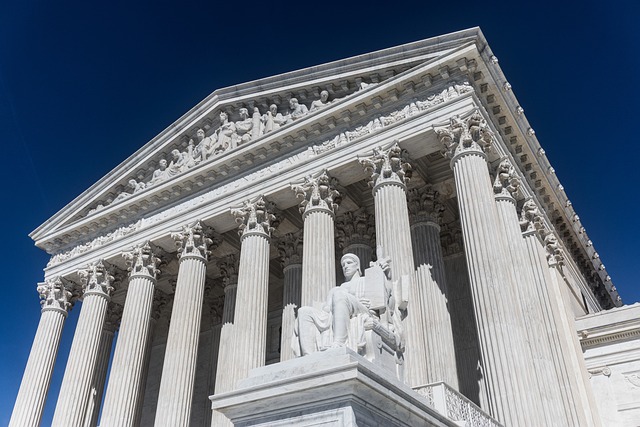Share This Article:

Washington, DC (WorkersCompensation.com) -- Those who follow current events will know by know that former U.S. Supreme Court Justice Sandra Day O'Connor died Friday at age 93.
While O'Connor has gone down in history for shattering the Court's glass ceiling, during her time on the top bench in the country, she penned a few decisions in workers' compensation cases.
Here's a look at some of those rulings:
General Motors Corp. v. Romein, 503 U.S. 181 (1992). When the Michigan legislature passed a law that required General Motors and Ford to repay workers' compensation benefits the auto makers had withheld in reliance on an earlier statute, they sued, claiming that Michigan's mandating these retroactive payments violated the Contract Clause. Held: The 1987 statute did not substantially impair the obligations of petitioners' contracts with their employees in violation of the Contract Clause, because there was no contractual agreement regarding the specific terms allegedly at issue. Also, the statute did not violate the Due Process Clause because its retroactive provision was a rational means of furthering the legitimate legislative purpose.
Ingalls Shipbuilding, Inc. v. Director, Office of Workers' Compensation Programs, 519 U.S. 248 (1997). In one of several Longshore and Harbor Workers' Compensation Act cases for which Justice O'Connor picked up the pen for the court, a shipfitter worked for a company between 1953 and 1967 and was exposed to asbestos in his workplace during this time. In March 1981, the shipfitter was diagnosed with asbestosis, chronic bronchitis, and possible malignancy in his lungs. Eventually, the shipfitter died and an administrative law judge upheld predeath settlement agreements his widow entered into, thus entitling her to death benefits. The company appealed all the way to the Supreme Court. Held: Before an injured worker's death, the worker's spouse is not a “person entitled to compensation” for death benefits under the Longshore and Harbor Workers' Compensation Act and does not forfeit the right to collect death benefits under the Act for failure to obtain the worker's employer's approval of settlements entered into before the worker's death.
Toyota Motor Manufacturing, Kentucky, Inc. v. Williams, 534 U.S. 184 (2002). This case is not about workers' compensation, per se, but it unintentionally led to the ADA Amendments Act coming to life. The case involved an autoworker who developed carpal tunnel syndrome and bilateral tendonitis, for which the worker eventually received workers' compensation benefits. Later, when she went back to work, the worker became unsatisfied with Toyota's efforts to accommodate her work restrictions, so she sued under the original version of the ADA. The case made its way to the Supreme Court, and Justice O'Connor wrote the unanimous opinion. Held: Because the worker's impairments didn't prevent or restrict her from performing tasks that are of central importance to most people's daily lives, she didn't have a disability under the ADA. Congress rejected this standard in the ADAAA and so now, the Toyota Motor Manufacturing case is no longer good law.
Editor's Note: Another decision penned by Justice O'Connor heavily influenced Congress in passing the ADAAA. In Sutton v. United Air Lines, Inc., 527 U.S. 441 (1999), O'Connor wrote for the 7-2 majority that held that under the ADA, the determination of whether an employee has a disability that requires reasonable accommodation should be made with reference to measures that mitigate the individual's impairment, something the ADAAA explicitly overturned.
AI california case file case management case management focus claims compensability compliance courts covid do you know the rule exclusive remedy florida glossary check Healthcare health care hr homeroom insurance insurers iowa leadership leadership link medical NCCI new jersey new york ohio osha pennsylvania roadmap Safety safety at work state info tech technology violence WDYT what do you think women's history women's history month workcompcollege workers' comp 101 workers' recovery Workplace Safety Workplace Violence
Read Also
- Jul 12, 2025
- Frank Ferreri
- Jul 11, 2025
- Frank Ferreri
About The Author
About The Author
-
Frank Ferreri
Frank Ferreri, M.A., J.D. covers workers' compensation legal issues. He has published books, articles, and other material on multiple areas of employment, insurance, and disability law. Frank received his master's degree from the University of South Florida and juris doctor from the University of Florida Levin College of Law. Frank encourages everyone to consider helping out the Kind Souls Foundation and Kids' Chance of America.
More by This Author
- Jul 12, 2025
- Frank Ferreri
- Jul 11, 2025
- Frank Ferreri
Read More
- Jul 12, 2025
- Frank Ferreri
- Jul 11, 2025
- Frank Ferreri
- Jul 11, 2025
- Frank Ferreri
- Jul 10, 2025
- Anne Llewellyn
- Jul 10, 2025
- Frank Ferreri
- Jul 10, 2025
- Liz Carey




